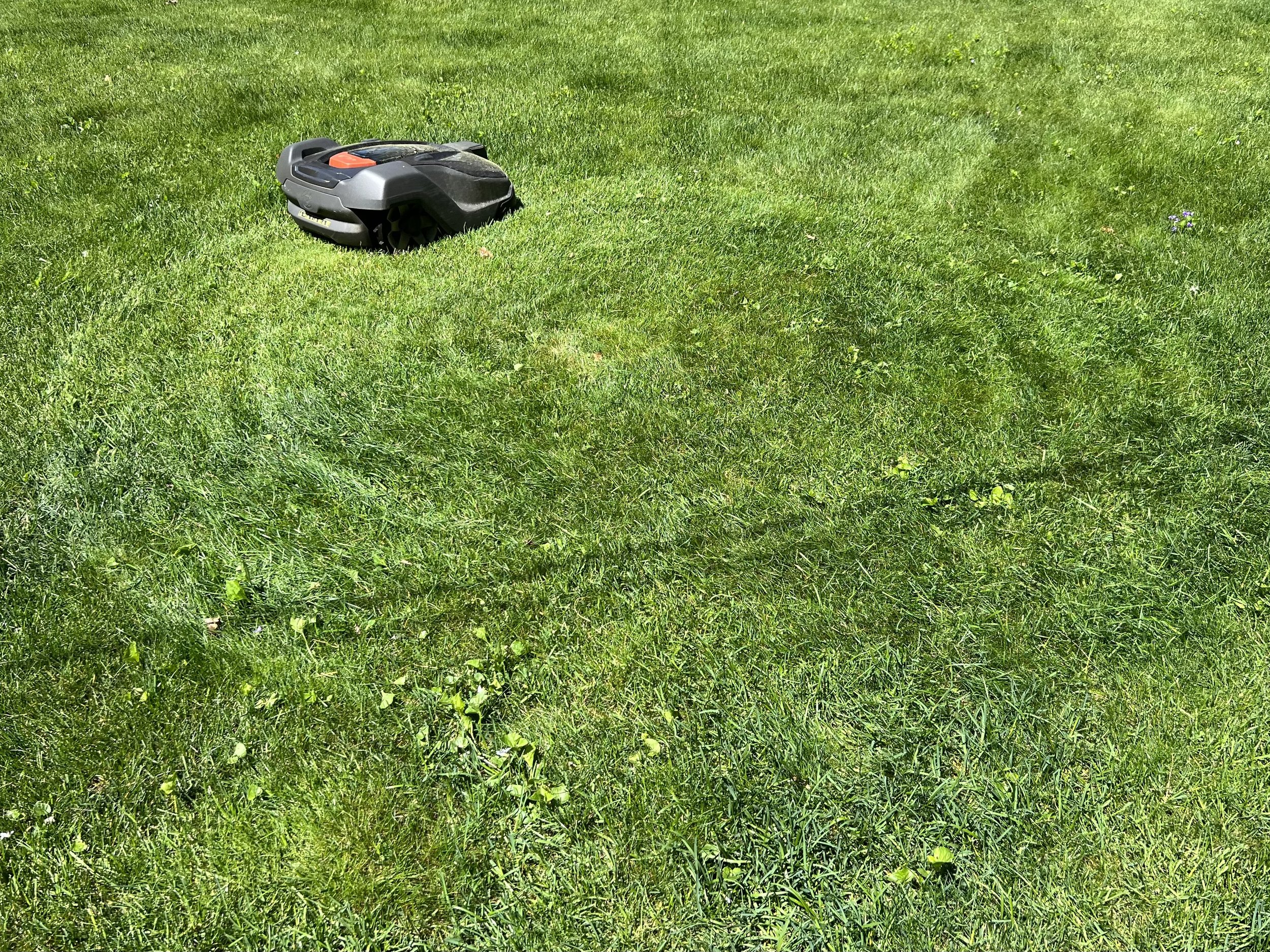I’ve run out of neighbor kids who are interested in a summer mowing gig, so I’m going robotic. The benefits are:
Electric. No more worrying about stale gas and oil changes.
Silent. This thing can run in the middle of the night and not bother anyone.
Automatic. I no longer have to think about when my lawn gets mowed.
Damp-safe. The mower will run in dew and light rain, returning to the base station if it senses a downpour. But the ability to deal with a little moisture means I no longer need to time my mowings around the weather and irrigation schedule.
Irregular. By mowing in seemingly random patterns, you stimulate richer and fuller grass growth.
Less thatch, more nutrients. Because the mower razor-slices off only a few millimeters at a time, the confetti created falls down to the soil level and decomposes faster than a longer chopped piece of grass. No bagging, raking, or blowing the cuttings is required.
Constant height. Best of all, the grass is always the perfect height. It can be kept a little shorter than the typical 3” New England standard… that’s only required if your grass grows out to 6” or so between weekly cuttings, which mine does. Lawns grow to be extra plush and thick when the blades aren’t chopped in half once a week.
My New Robot
I got a Husqvarna 450X - nicknamed ‘Husqi’ - used from friends who upgraded. Because we saw it in use on the block, I got to see how Maddox will react. She’s curious, but not too bothered. I think she just wanted to sniff its butt.
Boundary Wire Installation
The area to mow (outlined in pink) is a far cry from the boring perfect rectangle, which is why I love it… but it means a lot of boundary wire. The perimeter is about 1200 feet, and the area is about 8200 square feet.
Buying used saved me a good deal of money, but cost me a few days of backaches getting the wire installed myself. I could hire someone to run the line using a grass-slicing machine, but tacking it to the surface is an appealing way to get the placement right… and easily adjust if it’s not. I’ll need to be mindful when it comes time to de-thatch or aerate, but in a few months the wire will be completely hidden.
A guide wire (one of three, potentially) helps the mower find its way back to the charging station.
Lawn area shown in pink
Required tools: hand shovel, hammer or mallet, and pliers.
Guide wire (mine happens to be green) spliced into the black boundary wire.
Wire gets hidden quickly by grass. Within a month or so, I have to really search if I want to find the wire.
Getting started in the tall grass
The front lawn doesn’t have the criss-cross ball field striped look, but I’m just fine with that.
GPS tracking leaves something to be desired, but gives the general gist of coverage.
Maddox gets nudged every now and then, but has learned to stay out of Husqi’s way.
Notifications to my phone tell me when Husqi is out of bounds. After a few drops off this corner, it was time to move the boundary wire another inch farther from the sloped curb.
Looks good with zero effort. If only they made robots for the rest of life’s chores.
Crop circles handle the areas of tall grass.
Here’s a quick (well, 27 sec, sped up 8x from the original) video of Husqi following the guide wire from the far front corner, over the narrow driveway crossing, across the wide front yard, through the gate in the fence, and lining up to the docking station. For all the complications I created for it, Husqi has never failed to find its way home.



